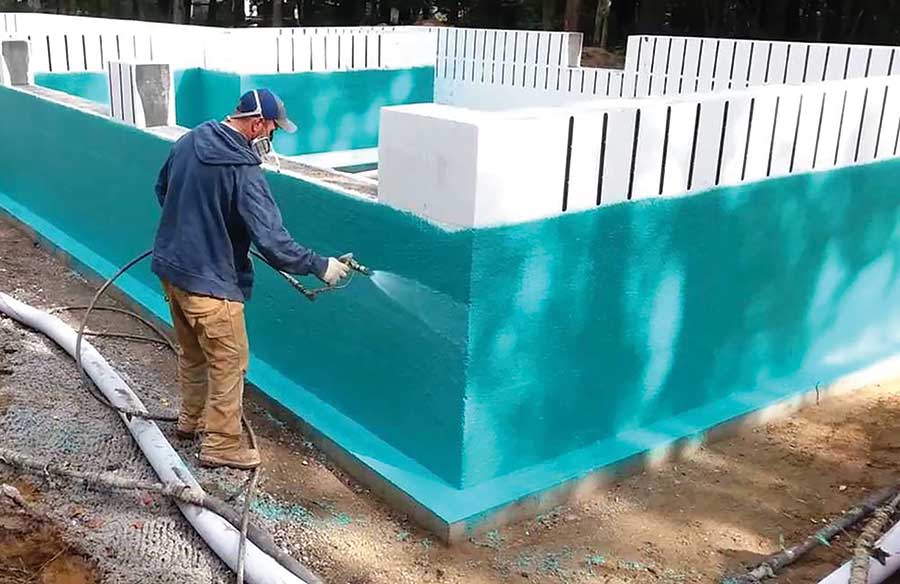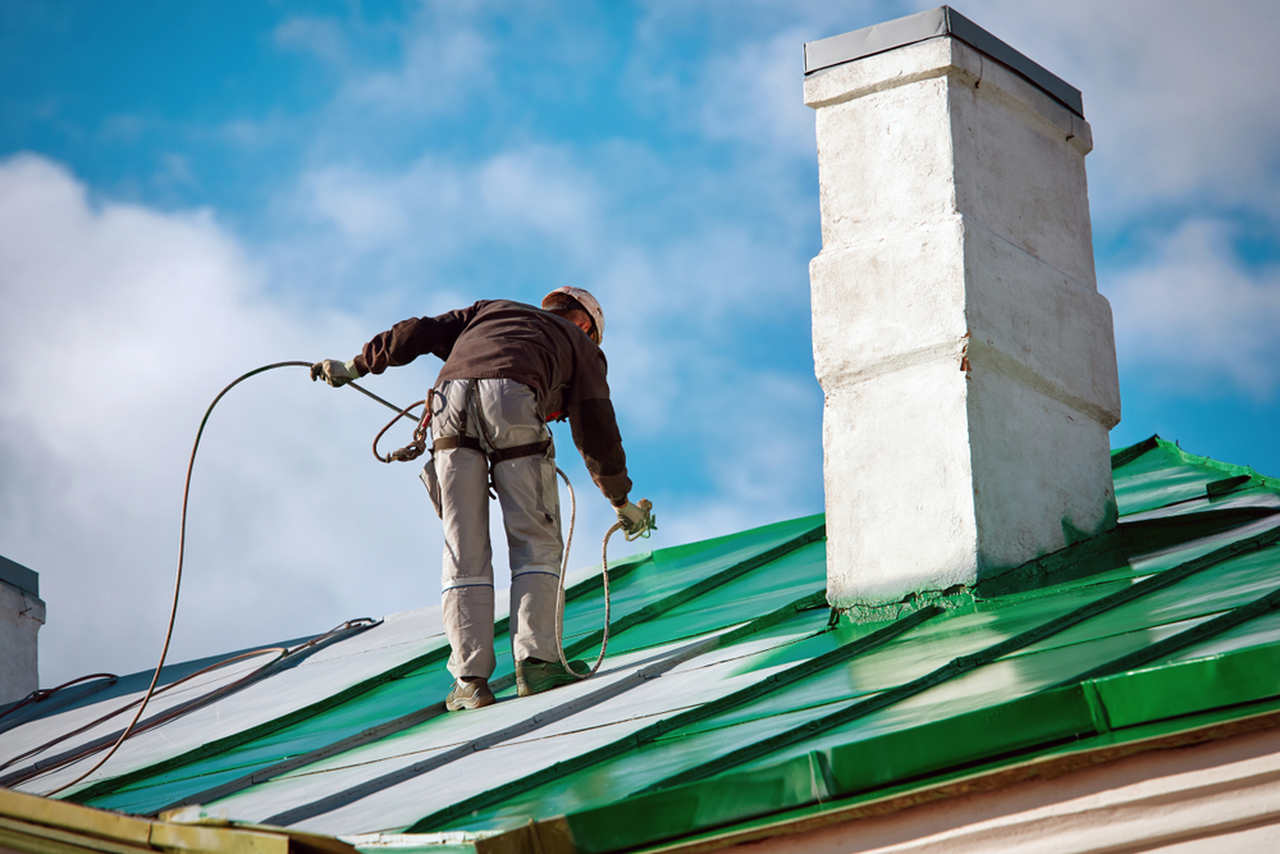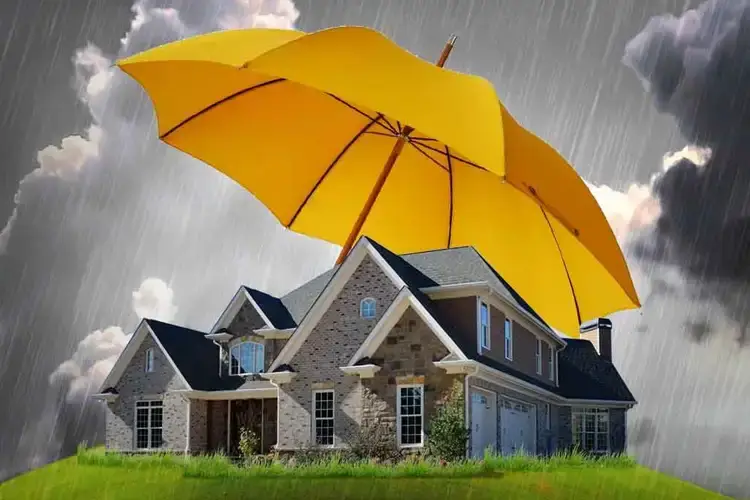
All Concerning Waterproofing: Recognizing Its Value and Advantages for Your Home
Waterproofing is a crucial facet of home upkeep that many house owners neglect. It offers to shield frameworks from the harmful results of water seepage, which can bring about considerable concerns over time. Recognizing the different methods and their significance can aid homeowners make educated decisions. As the discussion unfolds, the genuine concern remains: exactly how can effective waterproofing transform a home's strength against moisture-related hazards?
What Is Waterproofing and How Does It Function?
Waterproofing is a necessary process created to secure structures and frameworks from water infiltration. It entails the application of various materials and techniques that develop a barrier, stopping water from passing through surfaces. Common waterproofing methods consist of the use of membranes, coatings, and sealers, which can be put on roofs, structures, and wall surfaces. Each technique is selected based upon the certain demands and conditions of the structure.The efficiency of waterproofing relies upon appropriate installment, guaranteeing that all areas are sufficiently covered and sealed. Products such as bituminous membrane layers, liquid waterproofing compounds, and cementitious coatings are regularly utilized, each offering special benefits. In addition, water drainage systems may be incorporated to reroute water far from susceptible locations, further enhancing protection. Generally, waterproofing not only safeguards structural integrity but likewise improves durability, making it an important factor to consider in building and construction and remodelling tasks.
The Importance of Waterproofing for Property owners
Property owners face various difficulties in preserving their properties, and among the most considerable issues is water damage. This concern can emerge from various resources, including heavy rains, flooding, and plumbing failures. When left unaddressed, water damage can cause severe architectural issues, mold development, and pricey repair work. Waterproofing stands as an important preventative measure that shields homes from these prospective hazards.
Usual Waterproofing Methods and Techniques
When thinking about waterproofing approaches, property owners can select from a range of effective services. Exterior waterproofing solutions concentrate on preventing water from passing through the framework, while interior waterproofing methods attend to moisture concerns once they have actually occurred. Recognizing these options is important for keeping a completely dry and healthy and balanced home environment.
Outside Waterproofing Solutions
To protect a home from water intrusion, various outside waterproofing remedies can be utilized, each customized to the specific requirements of the structure. One usual approach is the application of water resistant membrane layers, which produce a barrier versus wetness. These membranes can be either liquid-applied or sheet-based, depending upon the setup requirements. Another effective method entails making use of drain systems, such as French drains, that redirect water away from the foundation. Additionally, using outside sealants can help secure surface areas from water penetration and deterioration. Landscaping options, including grading and appropriate water drainage, can likewise contribute notably to stop water accumulation around the foundation. Each of these methods plays a crucial duty in improving the long life and durability of the building.
Inside Waterproofing Techniques
Interior waterproofing methods are crucial for safeguarding a home against moisture and water damage. Typical techniques include the application of sealers and membrane layers, which develop a barrier on wall surfaces and floorings to avoid water seepage. Interior drainage systems, such as sump pumps and French drains, effectively reroute water far from at risk locations. In addition, vapor barriers can be mounted to block dampness from permeating via walls and floors, particularly in cellars and creep rooms (Yard drainage Omaha). Routine maintenance and assessment of these systems are necessary to guarantee their efficiency. Additionally, dealing with any kind of plumbing leaks or condensation concerns without delay can considerably boost the general waterproofing strategy. With each other, these techniques provide house owners with a comprehensive approach to decreasing the threat of water-related problems

Signs Your Home Requirements Waterproofing
Property owners should be aware of essential signs that their residential property might call for waterproofing. Noticeable water damages, mildewy odors, and frequent mold and mildew growth are vital signs that moisture is endangering the stability of the home. Resolving these problems quickly can avoid further damages and guarantee a much healthier living atmosphere.
Visible Water Damages
Visible water damage acts as a clear indicator that a home may need waterproofing steps. Home owners need to be watchful for indicators such as water stains on wall surfaces or ceilings, peeling paint, and deformed flooring. These noticeable signs typically symbolize underlying dampness problems that, if left unaddressed, can lead to extra considerable damages and costly repairs. Mold and mildew growth can additionally take place, though it will be discussed in the following section. Additionally, property owners ought to evaluate basements and creep areas for wetness or efflorescence on concrete surface areas, which suggests wetness infiltration. Noticing these indications early can assist avoid further deterioration of the home's architectural integrity. Prompt waterproofing measures can secure the financial investment and keep a healthy living setting.
Musty Odors Present
Mildewy smells are often an obvious sign that wetness is sticking around in concealed locations of a home, showing the need for waterproofing remedies. These unpleasant smells regularly emerge from damp cellars, creep areas, or behind wall surfaces, where water seepage may not be right away noticeable - Water Solutions Omaha. Property owners need to pay very close attention Visit Your URL to these smells, as they recommend that excess moisture is entraped, potentially resulting in further damage. The presence of stuffy smells can compromise indoor air high quality, affecting the health and convenience of homeowners. Neglecting this advising indicator can cause a lot more serious issues, making prompt evaluation and activity vital. By addressing waterproofing needs, homeowners can eliminate stuffy smells and produce a healthier living atmosphere
Regular Mold And Mildew Development
Regular mold growth is a clear sign that a home may be experiencing moisture issues, necessitating waterproofing measures. Mold flourishes in wet settings, making it a substantial worry for home owners. Indications of mold and mildew can include dark places on wall surfaces, ceilings, and around windows, as well as a consistent musty scent. If mold shows up repeatedly regardless of cleaning up efforts, it recommends underlying wetness issues. This can result from leaks, insufficient drain, or high moisture levels. Overlooking these signs can result in structural damage and health dangers, specifically for individuals with breathing concerns. Addressing waterproofing immediately can assist mitigate mold and mildew development, making sure a more secure and healthier living setting. House owners ought to take into consideration professional assessments to figure out the level of the dampness problem.
The Long-Term Benefits of Purchasing Waterproofing
Purchasing waterproofing uses homeowners an extensive feeling of safety and peace of mind, recognizing their home is secured versus moisture-related damage. This positive technique substantially lowers the threat of structural issues, such as wood rot and structure splits, which can bring about pricey repairs in time. Additionally, waterproofing helps maintain indoor air quality by lessening mold development, which can have unfavorable health and wellness effects for occupants.Furthermore, waterproofing enhances the longevity of a home, ultimately maintaining its value. A well-protected building is extra eye-catching to prospective purchasers, as they are less likely to experience covert moisture see post troubles. This investment likewise adds to power effectiveness; appropriately sealed spaces prevent drafts and decrease home heating and cooling prices. In general, the long-term advantages of waterproofing not just assure the Get More Info architectural honesty of a home however additionally promote a healthier living setting and bolster the residential property's bankability.
Picking the Right Waterproofing Professional for Your Home
How can a homeowner warranty they pick one of the most professional waterproofing professional for their demands? The procedure begins with thorough study and obtaining several quotes. Home owners should look for professionals with a strong online reputation, validated credentials, and considerable experience in waterproofing. Inspecting on-line reviews and requesting for references can give valuable understanding into a specialist's integrity and quality of work.Moreover, it is vital to ask about the specific waterproofing techniques each specialist uses, as well as the materials utilized. Home owners should verify that the chosen service provider is certified and guaranteed, which shields against possible obligations. A credible specialist will likewise offer an in-depth agreement outlining the range of work, timeline, and warranty details. By focusing on these standards, house owners can make informed decisions, ultimately resulting in improved security against water damage and a reliable waterproofing solution tailored to their home's needs.
Often Asked Questions
Can Waterproofing Be Done in Wintertime or Winter?
Waterproofing can be challenging during winter season or winter as a result of lower temperatures impacting materials' adhesion and curing processes. Specialized products made for cool conditions can make it possible for successful waterproofing applications also in winter months.
Just how Commonly Should I Water-proof My Home?
The frequency of waterproofing a home typically depends upon various elements, consisting of environment and material top quality. Experts recommend reviewing conditions each year and reapplying every five to 10 years, or sooner if considerable wear appears.
Does Waterproofing Affect Home Resale Value?
Waterproofing can greatly influence a home's resale worth (Water Solutions). Prospective buyers usually view waterproofing as a safeguard against water damages and mold and mildew, raising the building's appeal and marketability, potentially resulting in higher deals and quicker sales
Is DIY Waterproofing Effective for All Residences?
The effectiveness of do it yourself waterproofing differs by home. Factors such as property age, environmental problems, and existing damages impact outcomes. Homeowners ought to evaluate their particular scenarios before attempting DIY solutions to ensure long-term defense.

Are There Eco-Friendly Waterproofing Options Available?
Environment-friendly waterproofing alternatives do exist, including natural sealants like beeswax and plant-based items. These solutions decrease ecological influence while successfully protecting structures from water damage, attracting property owners seeking lasting options for their waterproofing needs.